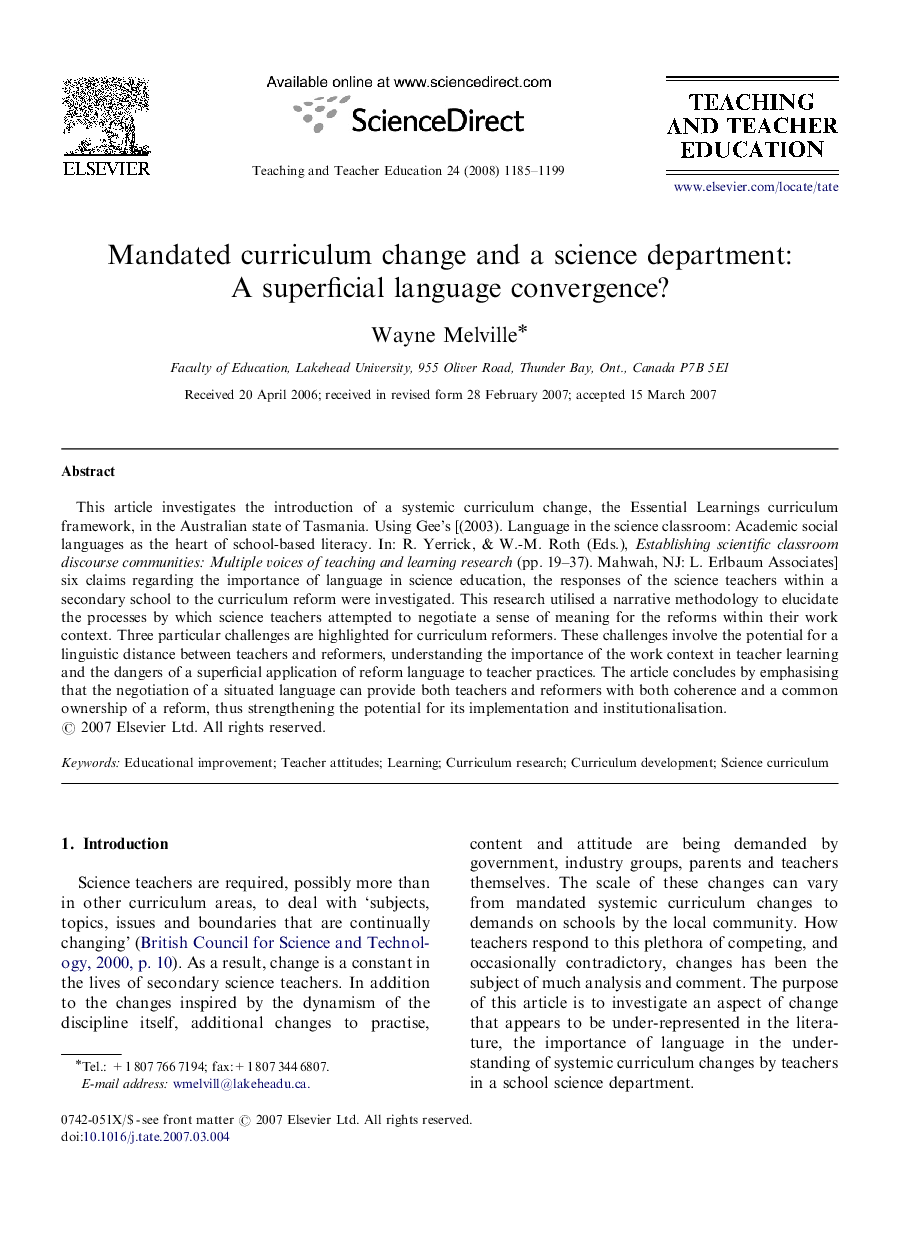| Article ID | Journal | Published Year | Pages | File Type |
|---|---|---|---|---|
| 374836 | Teaching and Teacher Education | 2008 | 15 Pages |
This article investigates the introduction of a systemic curriculum change, the Essential Learnings curriculum framework, in the Australian state of Tasmania. Using Gee's [(2003). Language in the science classroom: Academic social languages as the heart of school-based literacy. In: R. Yerrick, & W.-M. Roth (Eds.), Establishing scientific classroom discourse communities: Multiple voices of teaching and learning research (pp. 19–37). Mahwah, NJ: L. Erlbaum Associates] six claims regarding the importance of language in science education, the responses of the science teachers within a secondary school to the curriculum reform were investigated. This research utilised a narrative methodology to elucidate the processes by which science teachers attempted to negotiate a sense of meaning for the reforms within their work context. Three particular challenges are highlighted for curriculum reformers. These challenges involve the potential for a linguistic distance between teachers and reformers, understanding the importance of the work context in teacher learning and the dangers of a superficial application of reform language to teacher practices. The article concludes by emphasising that the negotiation of a situated language can provide both teachers and reformers with both coherence and a common ownership of a reform, thus strengthening the potential for its implementation and institutionalisation.
